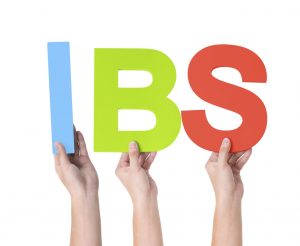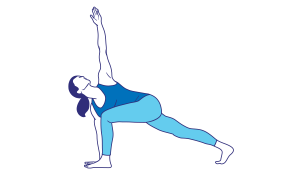IBS is a disorder that affects the large intestine and means, literally, that the patient has irritated bowels. IBS causes a great deal of pain and discomfort but does not permanently damage the large intestine, nor does it cause more serious conditions such as colon damage or cancer. For some people, IBS is mild and can be managed with diet and stress management. For many others, however, the conditio n is disabling, making it impossible to work or travel even short distances.
n is disabling, making it impossible to work or travel even short distances.
IBS is characterized by cramping, abdominal pain and bloating, gas, diarrhoea, and constipation. Patients who have IBS-related diarrhoea often feel an urgent and uncontrollable need to have a bowel movement. Many people alternate between diarrhoea and constipation. Also, some people find that their symptoms subside for months, whereas others’ IBS worsens over time. Because it is not clear what causes irritable bowel syndrome, medical treatment tends to focus on the relief of symptoms. Some of the treatments include anti-diarrhoea drugs, anticholinergic (these drugs suppress the nervous system) drugs and even anti-depressants. Bear in mind, all these drugs have side effects. Because of the side effects, Chiropractors have a more natural approach to treating IBS. One of the most telling realizations about irritable bowel syndrome is that even though the cause is unknown, most experts/clinicians will tell you that there is a dysfunction in the muscles of your intestines that causes the food to be moved through them either too fast or too slow. This movement is controlled by your parasympathetic nervous system. Those parasympathetic nerves exit your spine in your lower back and go to the intestines.
If there is a problem with that area of your low back, it may affect how the intestinal muscles function. Just like people can have symptoms in their legs as a result of a low back problem affecting the nerves to the legs, they can have intestinal symptoms if the parasympathetic nerves going to the intestines are involved with a spinal problem.
Chiropractors treat IBS through specific chiropractic adjustments that affect the parasympathetic nervous system. If you’re suffering from this chronic, and often times debilitating, condition, wouldn’t it be worth giving chiropractic a try? Unlike the medications, chiropractic care has no side effects.

Towards Wellness: Staying Healthy in Your 40’s & 50’s
Without knowing it, by the time we reach our 40s and 50s many of us will have dramatically increased our chances of becoming ill later in life. Whether we are eating the wrong things, drinking more than we should, continuing to smoke despite everything we know, or just not being active enough, all of these small things can add up to an unhealthy you. Making better choices today can have a huge influence on our health, and could prevent conditions like type 2 diabetes, cancer and heart disease, and reduce our risk of suffering a stroke or living with dementia, disability and frailty in Australia.
S-T-R-E-T-C-H of the Month: Lunge with Spinal Twist
- Start standing with your feet together.

- Take a big step forward with your left foot, so that you are in a staggered stance.
- Bend your left knee and drop into a lunge, keeping your right leg straight behind you with your toes on the ground, so you feel a stretch at the front of your right thigh.
- Place your right hand on the floor and twist your upper body to the left as you extend your left arm toward the ceiling.
- Hold for 30 seconds to 2 minutes.
- Repeat on the other side.
